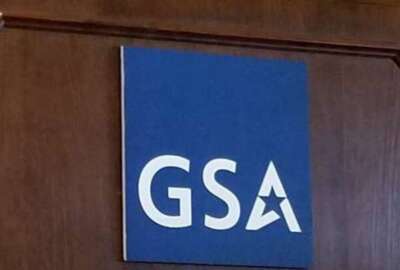Are you violating the Hatch Act and you don’t even know it?
Under the Hatch Act, federal employees face a number of restrictions when it comes to their political activity on and off the job. The law was originally designed...
wfedstaff | April 17, 2015 6:53 pm
In the run-up to the 2012 presidential election, two employees at the Internal Revenue Service thought it was OK to offer their political opinions while on the job.
One customer service representative answered the phone with a chant urging callers to support President Barack Obama.
Another IRS employee employee, a tax-advisory specialist in Kentucky, told a taxpayer she supported Democrats and that “Republicans already [sic] trying to cap my pension and … they’re going to take women back 40 years.”
In both cases, the Office of Special Counsel (OSC) investigated complaints against the IRS employees for violating the Hatch Act. Under the statute, federal employees face a number of restrictions when it comes to political activity.
“It’s intended to protect federal employees from political coercion at work,” Ana Galindo-Marrone, chief of OSC’s Hatch Act unit, tells Federal News Radio as part of our special report, Trust Redefined: Reconnecting Government and Its Employees. “It’s a safeguard to the merit system by ensuring that career advancement for federal employees is based on merit and not political affiliation. One of the other goals, which is tied to the two previous ones, is that it fosters public trust by requiring that federal programs, federal institutions be administered in a non-partisan fashion.”
A number of agencies and positions are further restricted under the law, including the Federal Election Commission, the Federal Bureau of Investigation and Galindo- Marrone’s office.
“There are five critical prohibitions that apply to all federal employees,” she said. “But if a federal employee is employed in one of the listed agencies or holds one of the specific positions identified in the statute, then in addition to the five prohibitions that apply to everyone, there are additional restrictions.”
For example, employees at OSC and other restricted agencies cannot actively participate in political management or campaigning.
Before the Hatch Act was amended in 1993, all federal employees were subject to further restrictions.
“Now, most federal employees are permitted to engage in political management and political campaigning if they make sure their activities occur off duty and while away from the workplace,” Galindo-Marrone. “Those of us who are further restricted can’t offer or volunteer services to a campaign, even if those services were to be performed after hours.”
Federal employees are only permitted to run for non-partisan offices.
“One of those absolute prohibitions that everyone is subject to, whether they’re further restricted or they’re not, is candidacy,” Galindo-Marrone said. “We’re seeing an uptick in the number of federal employees that are becoming candidates in partisan elections.”
The Hatch Act was amended again in 2012 to provide agencies with a range of penalties for employees caught violating the law, including suspensions, fines and grade reductions. Previously, an agency’s only recourse for violations of the law — even relatively minor ones — was to fire the employee.
Many federal employees are on-board with the changes to the law, according to an exclusive Federal News Radio survey. More than 62 percent of respondents said they agreed with the recent Hatch Act reforms.
“Firing should be the last resort,” one respondent said. “I believe everyone deserves a second chance, and many times, employees learn their lesson aft their first punishment.”
Another respondent agreed: “They fired a long-time employee for showing up at a political rally in a shirt with a government logo on it. Worth punishing — but ending a career for a stupid mistake? A little discretion makes sense — punishment but measured.”
OSC: Hatch Act meant to protect employees
According to Galindo-Marrone, one of the things feds seem not to understand about the Hatch Act is that it’s actually meant to help employees.
“Looking at it very broadly, I think that some federal employees sort of don’t understand that the law is intended to protect them from political coercion, that they’re not going to be required as part of their job, they’re not going to have to perform political chores,” she said. “The law’s not just merely intended to be an unfair restriction preventing them from engaging in political activity.”
Another area of confusion is when it comes to understanding the scope of the law’s prohibitions.
“As applied, I think that there are some prohibitions that federal employees are confused about and don’t realize that the prohibitions are absolute, meaning that even when they are away from the workplace and not on duty, those prohibitions continue to apply,” Galindo-Marrone said.
For example, federal employees can’t take part in any political solicitation — soliciting money for a candidate or campaign.
“Even if you’re not on the clock, you’re not in a federal building, as a federal employee, you’re prohibited from soliciting political contributions,” Galindo-Marrone said. “It’s a 24-7 prohibition.”
The area of the law where most violations occur is political activity on duty or in the federal workplace. That’s where OSC sees the greatest number of complaints.
“They can range from people distributing or circulating emails or posting to any type of social media platform their position on a candidate, directing people to vote a certain way, using the email or social media to solicit,” Galindo-Marrone said. “It could be people displaying items in the office that show their support for or against a candidate or a political party. But they all fall into this big category of political activity on duty or in the federal workplace.”
Many of the technological changes that have occurred in the federal workplace over the last 20 years, especially in terms of email and social media activity, have contributed to a growing number of workplace violations OSC has encountered.
“For the most part, almost every federal employee has a computer at their disposal at work, as well as smart devices,” Galindo-Marrone said. “Whether it’s an iPhone or an iPad or any other type of smartphone or device that allows them to very quickly gather information and then also with a couple of keystrokes, distribute that type of political content.”
A good rule of thumb when it comes to the Hatch Act, according Galindo-Marrone, is to think before you act.
“It’s so easy to get caught up in sort of the casual nature of email,” she said. “You receive an email and you quickly forward it to a group of people. What we encourage federal employees is to stop, think about what they’re circulating, what they’re about to distribute. They really need to be careful that if it’s political content that they not be distributing that type of material on-duty or in the workplace. When in doubt, they should talk to their agency ethics officer or contact our office for guidance before acting.”
OSC offers a number of resources for federal employees looking for answers to questions relating to the Hatch Act, starting with the office’s website.
“We also have a hotline (800-85-HATCH) that folks can call in and ask questions about the Hatch Act, just so that they’re sure that what they’re about to do is permitted under the law,” Galindo-Marrone said. “We also have an email address dedicated to receiving questions from federal employees and the public about the Hatch Act.”
OSC is the agency with exclusive jurisdiction to investigate Hatch Act complaints as well as issue advisory opinions. When OSC receives a complaint, it investigates and makes a decision as to whether disciplinary action is warranted in the case of a violation.
If it’s determined that a violation has occurred, OSC can either issue a warning letter or make a recommendation to the special counsel that the incident warrants disciplinary action. At that point, it can be settled either informally with the employee or OSC may send the complaint to the Merit Systems Protection Board for adjudication.
MORE FROM THE SPECIAL REPORT, TRUST REDEFINED:
Copyright © 2025 Federal News Network. All rights reserved. This website is not intended for users located within the European Economic Area.
Michael O’Connell is senior digital editor of Federal News Network optimizing content for the best user experience. Follow @moconnellWFED
Follow @moconnellWFED






